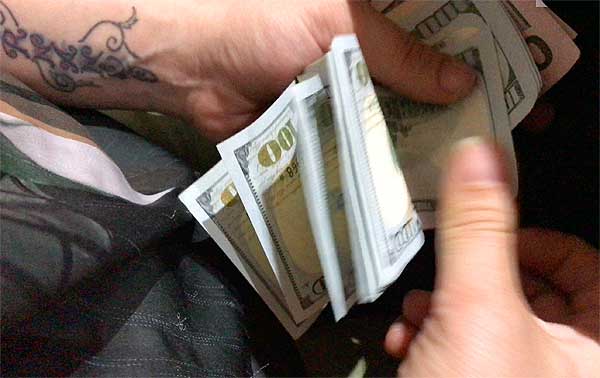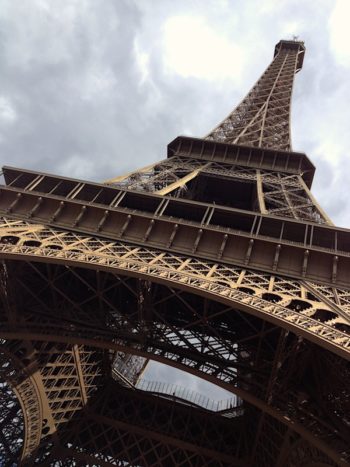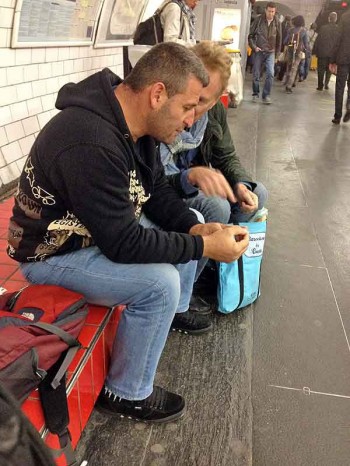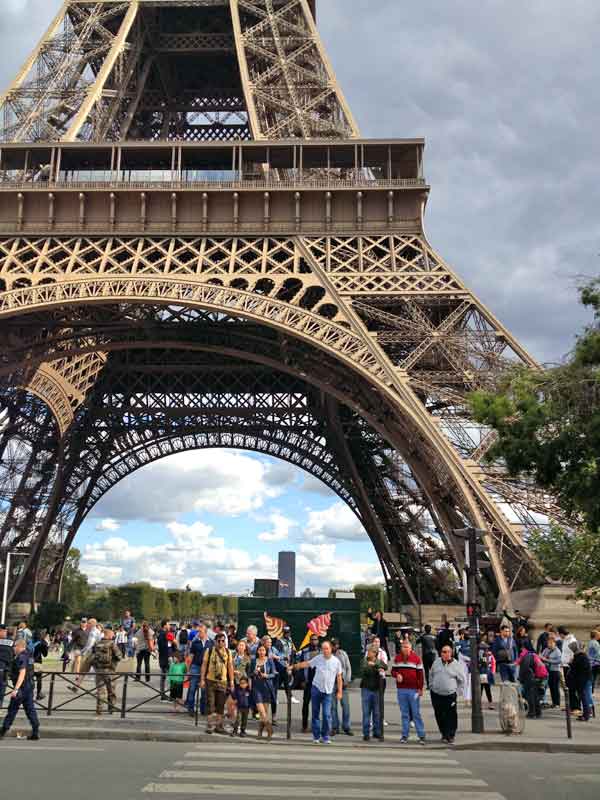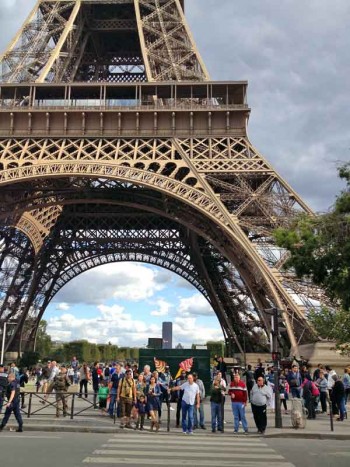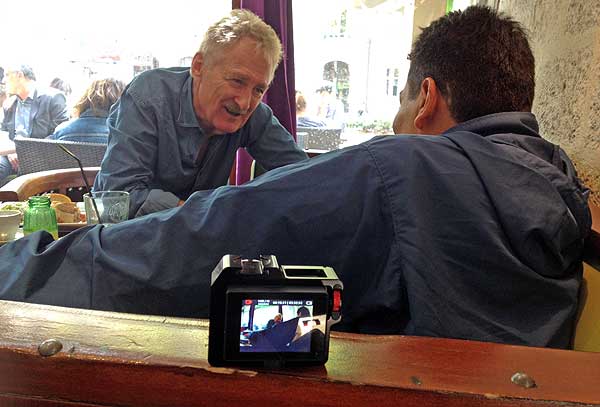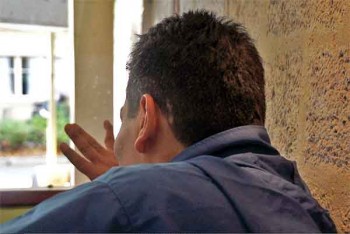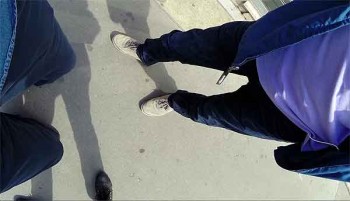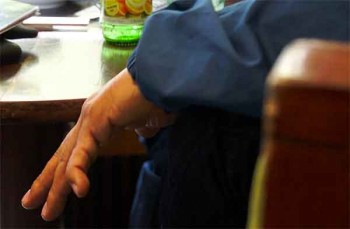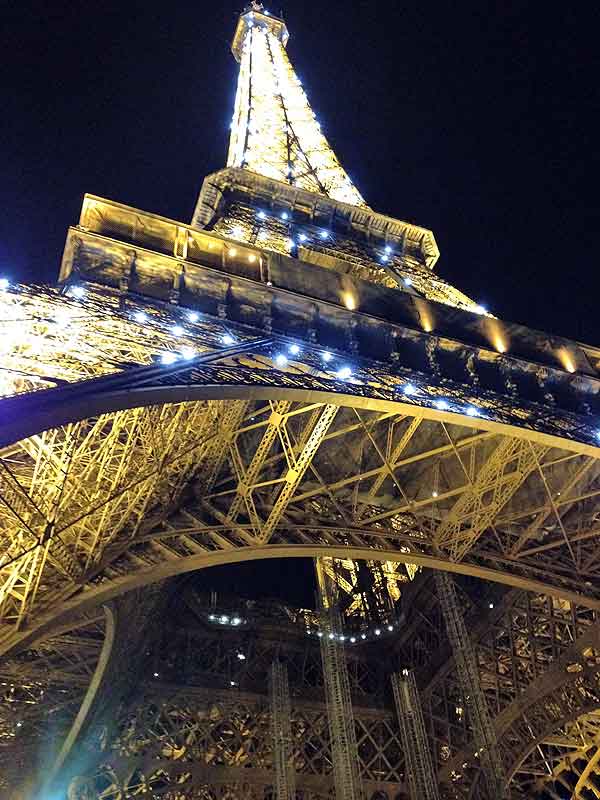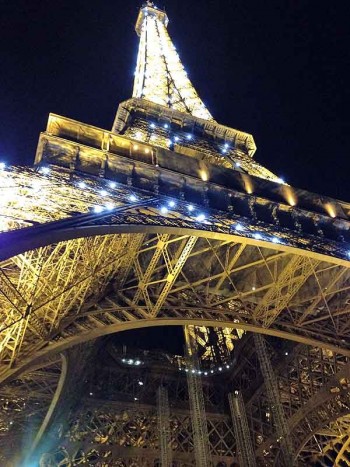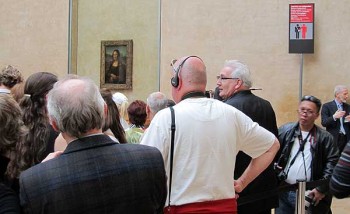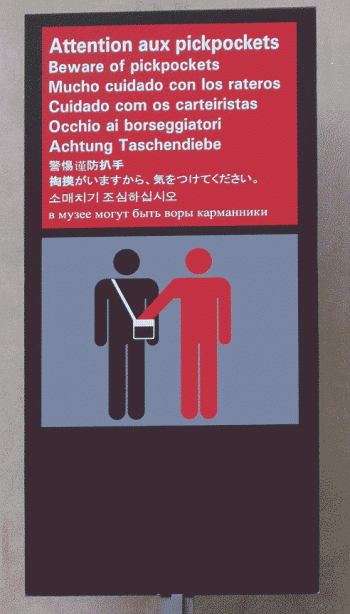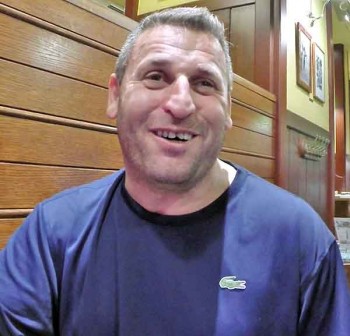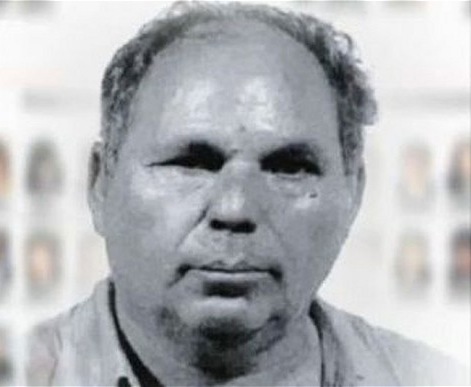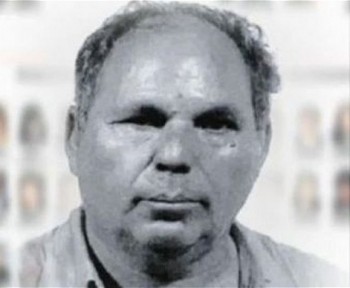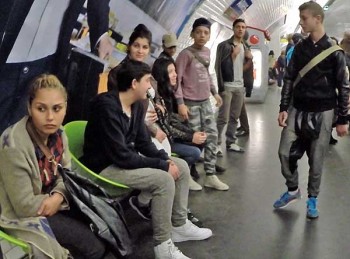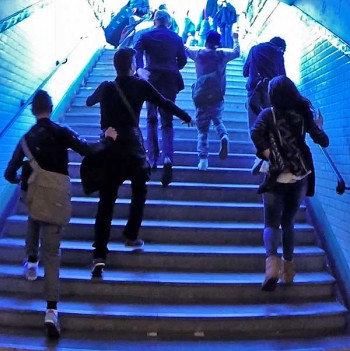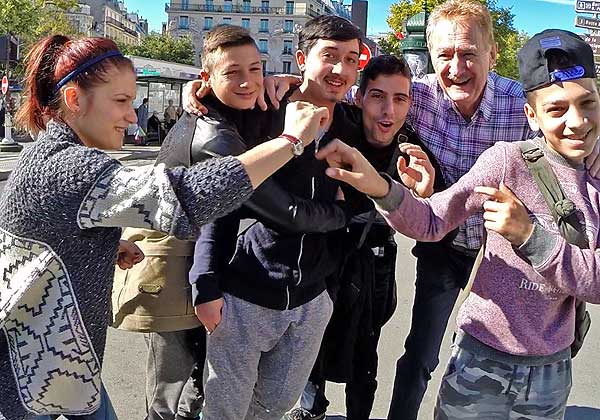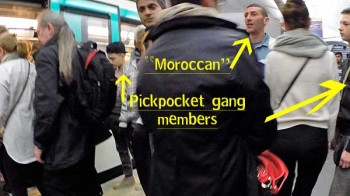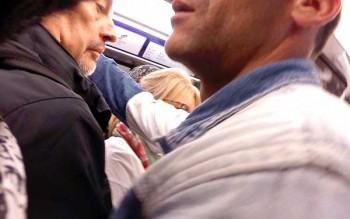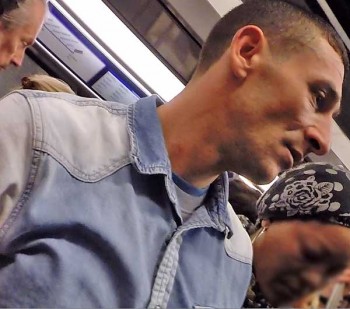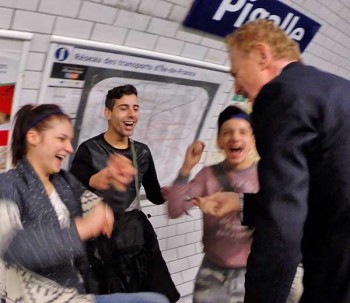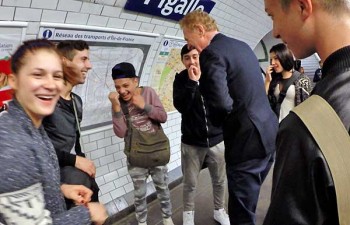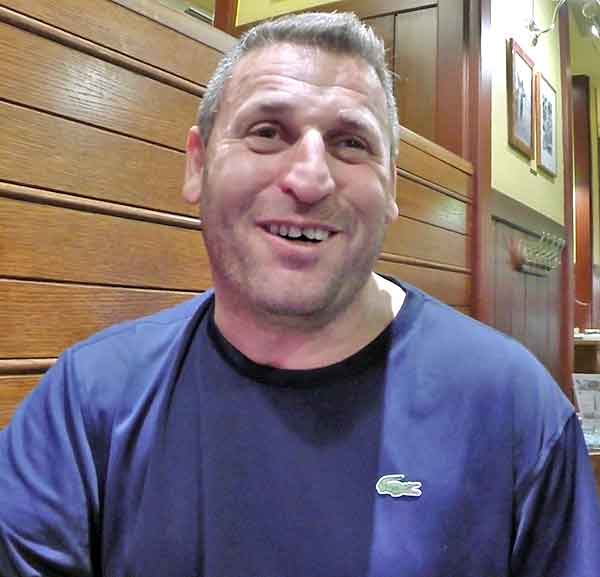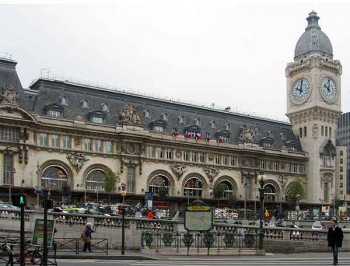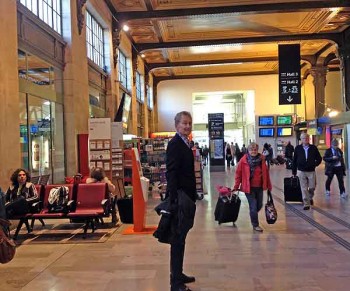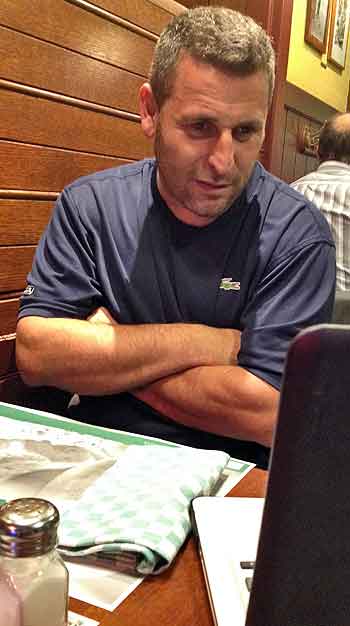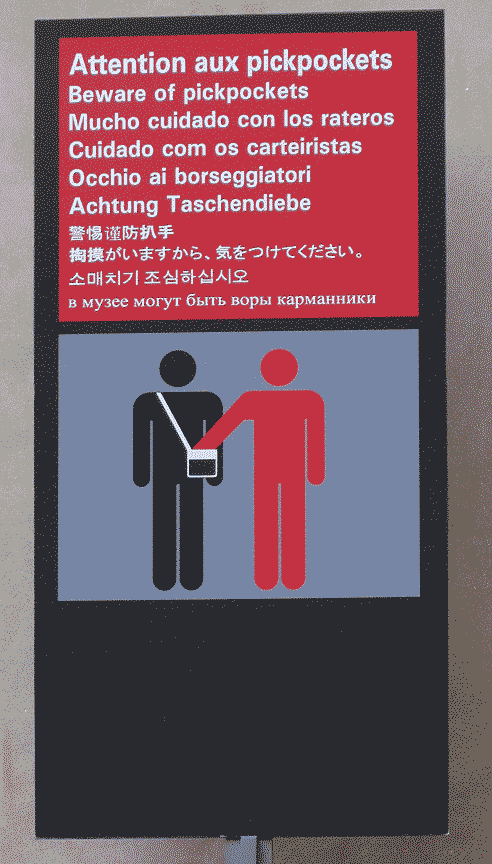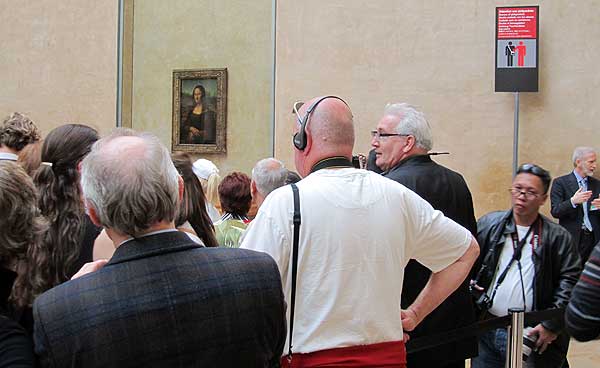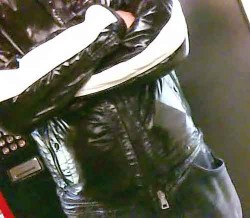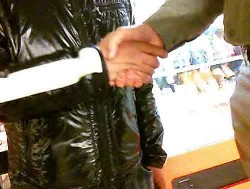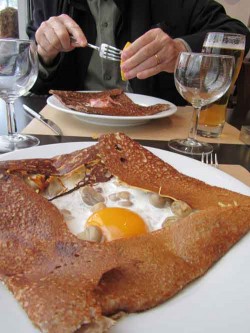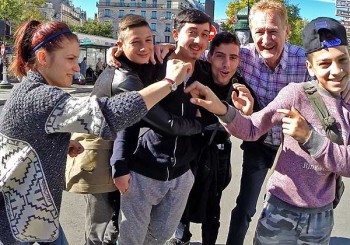
“I know you!” the girl said when she turned around and got a glimpse of Bob Arno. He and I had followed the girl and her friend because, though we only saw them from behind, their posture and behavior told us they were hardworking Paris pickpockets.
We’d been ready to head home after a long day of thiefhunting in Paris when the sky broke loose and rain fell in buckets. Bob and I dove into the first Metro station we could find, drenched.
And there on the platform, two thieves; a girl-pair of pickpockets. I got my video running as we pushed onto the rush-hour train behind them. The train doors smacked close on my shoulder and opened again. I pressed closer behind Bob and the doors closed. The girls were smashed up against us.
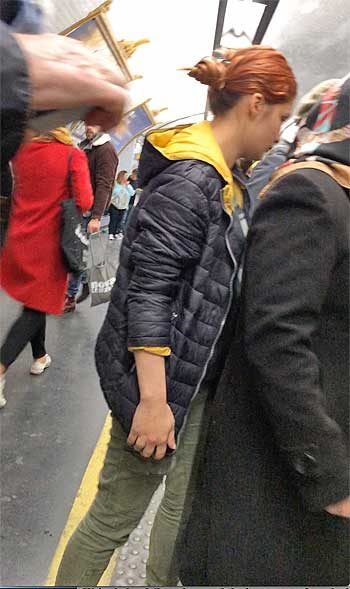



Crowds are ideal for thievery, but this train might have been too sardiney for the pickpockets to plunge their hands downward. Unable to work, they got off at the next stop.
Paris pickpocket pursuit
We followed, which is when the younger one turned and recognized Bob—just as she did in October of 2014. Back then, two and a half years ago, she was part of a swarm of child pickpockets. I thought the youngest boy must have been about ten. She had recognized Bob from the film National Geographic made about us, Pickpocket King, which is on Youtube. Of its millions of views (almost 8,000,000 for the English language version alone), many viewers are criminal pickpockets.
This time, when the girl-thief recognized Bob, her face lit up and she reminded us that we’d met two and a half years ago. She tried to assuage her jittery older partner while dragging us off to dinner at a large pizza joint.
Dinner conversation was jolly, despite the elementary French and occasional phone app-translations. The partner slowly warmed up. Turns out the girl, Gh____, is a woman of 28. She still tells police that she’s 17 in order to avoid jail. Good trick. Common trick. And in her case, pretty believable if you don’t know her from previous arrests.
Our official Paris police source, the Mysterious Monsieur F, tells us that arrestees often claim to be under 18, and of course they often use aliases. When the police doubt the perp’s age, they can ask to do a bone scan, which may corroborate the under-18 claim. But the Paris pickpockets don’t have to give consent. That recently happened, the Mysterious Monsieur F. told me, with a 92-year-old male pickpocket. If they’re lucky, police can match these perps to previous arrest records. (If that 92-year-old has arrests spanning more than 18 years—poof!—busted!)
Portrait of a pickpocket
Gh____ has six children! Right, I wonder why. Police can’t jail perps who are pregnant or carrying an infant. So the pickpockets have lots of babies and share them around. But Gh___ said she truly loves having many children, loves coming home to the commotion with them all swarming around her, and wants to have many more. She’s a Gypsy, and the Gypsy culture truly does revere its children.
Gh____ was first married at 13 and had her first child soon after. Which makes me wonder: were any of the children in the gang we met in 2014 Gh____’s children? They could have been. I regret that I didn’t think to ask her.
We are connected to Gh____ on facebook, but she is completely illiterate. She started pickpocketing at a very young age and didn’t go to school. All her family are thieves, she told us. I wonder now if that includes her kids.
Gh____’s partner that day was V___, who seemed older, and can write. V___ wrote down Gh____’s contact info for us. She has five children and doesn’t want any more.
Gh____ told us that she recognizes all the civilian police officers, and they know her. They can even recognize each other from behind. They also know her distinctive tattoos, which she got in jail. [Aha! So she has spent time in jail!]
Gh____ claims she only takes cash, not credit cards. (We find that hard to believe, given the incredible potential for exploiting cards. But credit card fraud is a higher level crime than cash-stealing, and why should she trust us with all her secrets?) She’s saving up to join other family members in the U.S. She needs two million dollars for a visa, she said. Her family in the U.S. make a lot of money with credit cards, and she wants to join them.
She then displayed her hefty wad: at least $1,300 in fresh U.S. hundred-dollar bills and a few 50s. (All the bills looked new; had she just exchanged a collection of foreign currency? Or was she stalking marks she spotted at cash machines?)
Gh____ insisted on paying for dinner, then got antsy to get back to work. It looks like she’ll get that two million!

